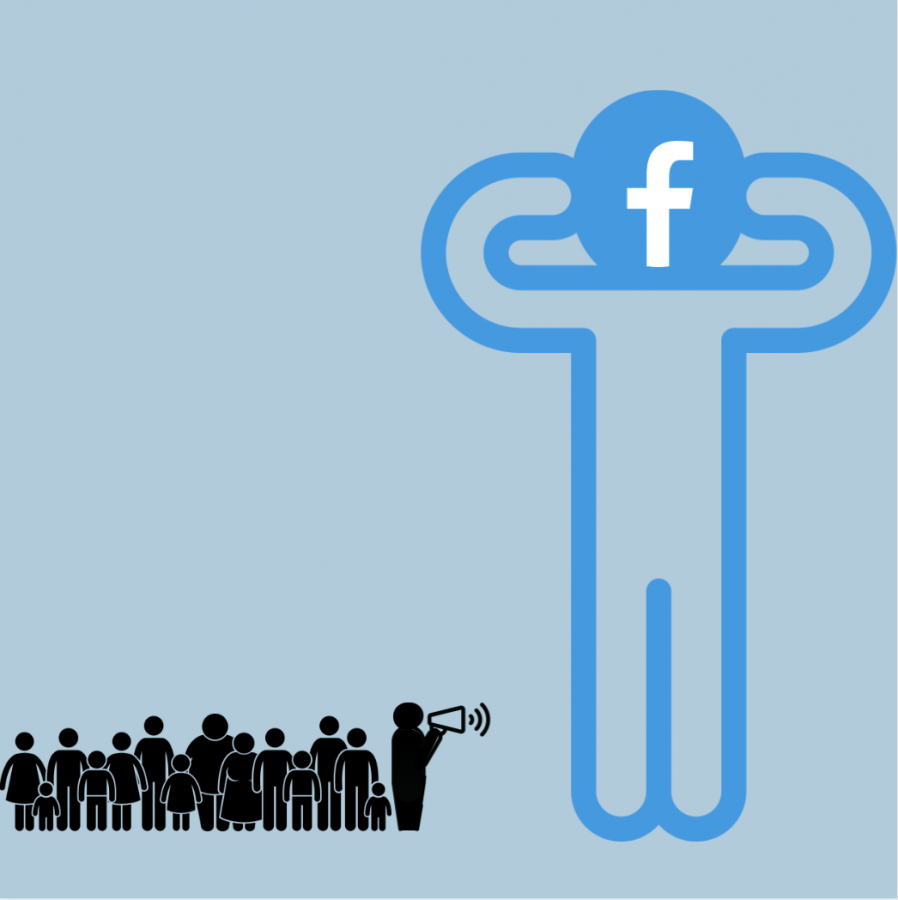Facebook Whistleblower Changes Nothing, and Won’t Unless We Change First
Waiting for social media giants to change their practices is a mistake.
December 13, 2021
Following the release of the Wall Street Journal’s “The Facebook Files”, major tech corporations are under greater scrutiny than ever before. With damning evidence of Facebook’s knowledge of its damaging effects on mental health, especially on that of young girls, among other internal failures, many are calling for systemic change.
Politicians, parents, mental health experts, kids, and general users alike have rallied behind efforts to hold Facebook accountable, with some even claiming Big Tech companies should pay monetary damages for their detrimental effects on mental health, and others calling for new legislation that would reduce the legal ambiguity that has protected Big Tech thus far. But how realistic are we to expect that these demands will be accepted, and at what point must we learn that these companies will not change until we do?
When the Facebook whistleblower, Frances Haugen, first leaked the internal documents, outrage spread across the nation. Well, at least a week.
The documents, which were released in the Wall Street Journal’s investigation, were published in September. Three months later, proposed legislation still has not been passed and any form of meaningful restitutory action from Facebook itself has yet to be seen.
No significant steps have been taken to remedy Facebook’s evident “toxicity”. Yet, as headlines condemning Facebook have descended in status from landing page stories to last month’s news, the outraged voices that called for change just weeks ago are now nowhere to be heard.
This is not unusual, as “activist burnout” indiscriminately affects activists of any cause. Activist burnout is essentially defined as a phenomenon that occurs when an individual feels useless or exhausted in their activism efforts because of their inability to create substantial change.
While understandable, it’s also dangerous, as widespread activist burnout is often responsible for the extinguishment of entire movements. The activism movement that followed Facebook’s recent scandal appears to be falling victim to this trend, as people initially seemed to demonstrate intense resistance to the company, but after a couple weeks of their calls for change being ignored, they felt as though they had exhausted their efforts and decided it was time to concede.
By no means am I asking you to advocate for a cause that may not matter to you, but rather encouraging you to take initiative in ensuring that the companies you demand accountability from actually take it. If you call out Facebook’s depiction of moral responsibility or criticize its leadership, don’t simply return to your usual Facebook habits, putting money into the pockets of those you just condemned with each scroll.
Calling for change is one thing, but taking the action needed to enact it is entirely another. If this sounds like a lot of work, that’s because it is. But with a multi-billion dollar company like Facebook as the opposition, we are unrealistic to expect that Haugen’s testimony alone will change anything, especially if Facebook finds its lost users returning without having made any change at all to their software or policies.
If we want Facebook to approach our concerns with serious intent to address them, we need to give them a reason to care. Facebook did not attain the power it holds today by following its shining moral compass; Facebook cares about one thing and one thing only: money. If you take away Facebook’s users, you take away the money. If you take away the money, you just might get their attention.
Burning out, and returning to Facebook or other Facebook-owned platforms, before significant progress has been made towards both addressing the critical flaws of the software itself and determining where the internal failure to report these flaws occurred, undermines the work of the entire movement and surrenders the only bargaining chip we have: withdrawal of usership.
We made Facebook what it is today. Whether we want to admit it or not, by engaging, we give the platform its power, as Facebook would be nothing without its users.
I, myself, don’t entirely boycott social media, or even Facebook-owned platforms for that matter, nor have I ever claimed to. In fact, I’m not suggesting that you do either. But what I am suggesting is for you to more carefully consider your own behavior and tendencies before you rant about social media companies’ negligence.
You are not wrong to want change, but you are unrealistic to expect that it will come easily.







